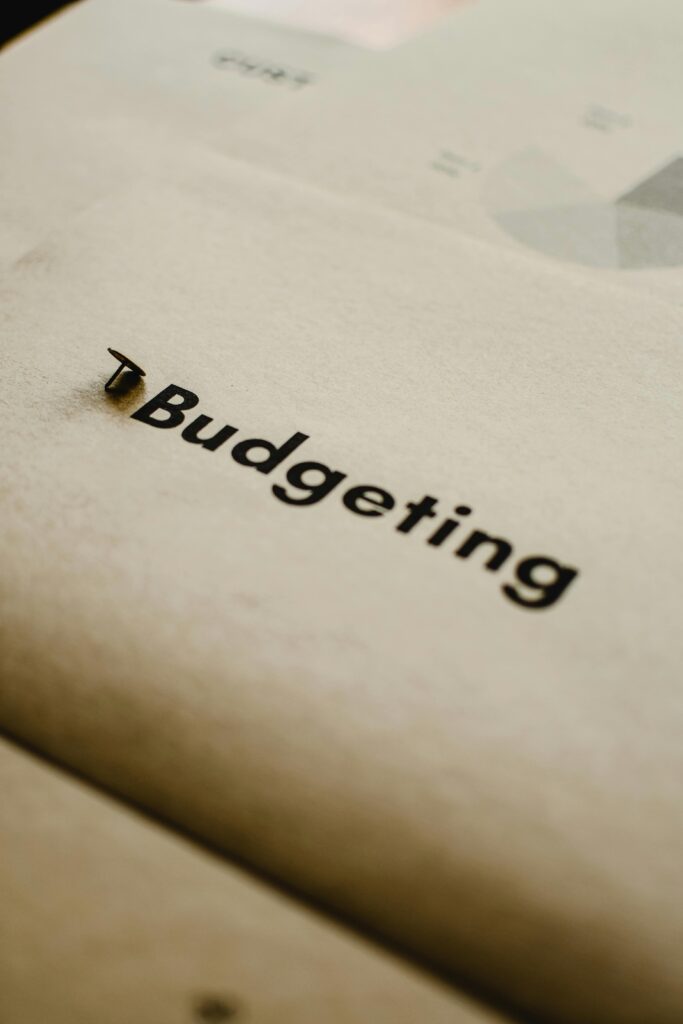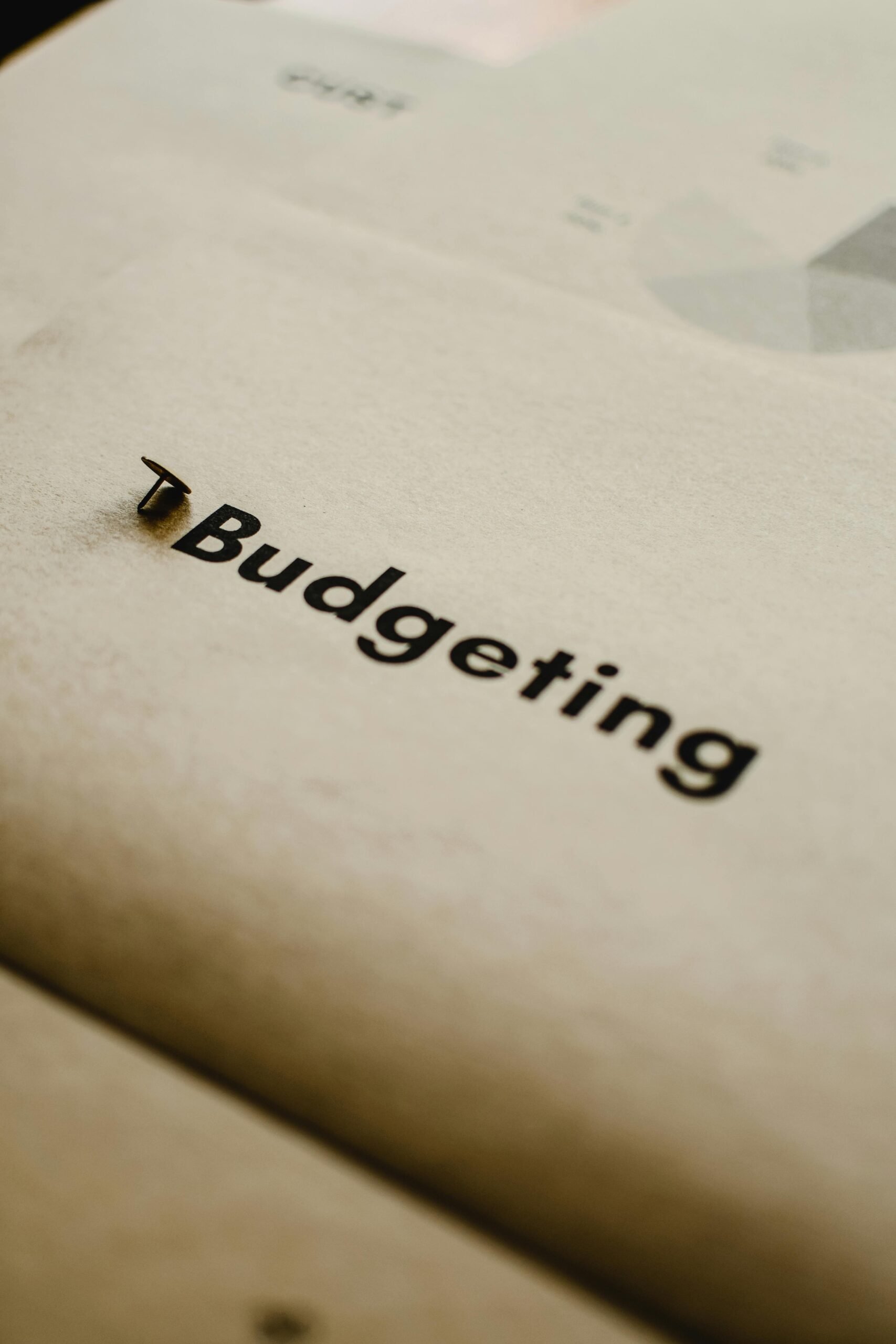How Budgeting Works

Most people struggle with planning their finances and allocating their resources, which is where budgeting comes in. To achieve financial stability and long-term financial goals your financial planning and budgeting are very important.
However some may struggle with this due to various reasons ranging from financial illiteracy to unexpected expenses, so it is essential to educate yourself by reading books, attending seminars, or even consulting a professional if needed.
What is a Budget?
A budget is a plan that helps manage your finances. It is an estimation of your income and expenses over a period usually on a monthly or yearly basis. A budget aims to ensure that your spending does not exceed your income.
With a budget, you can:
Monitor your income and expenses: This helps you understand what you spend on.
Set financial goals: A budget can help you allocate your money towards things you want to save up for, like a vacation or a new gadget.
Prioritize your expenses and avoid debt: By sticking to your budget, you can avoid overspending and accumulating debt.
What is Budgeting?
Budgeting is the process of creating a budget. It involves looking at your personal or business’ estimated income (money coming in) and expenditures (money going out) in the future.
For instance, if you want to try baking for the first time, you wouldn’t just go into your kitchen without having an idea of the measurements to use or the steps to follow. Budgeting is like creating a map for your finances, it helps you to see where you’re going, which is your financial goals, and how much money you have to get there.
Budgeting is also important in businesses of various sizes. It outlines expected revenues and expenses to ensure they’re not spending more than they’re earning and by setting a budget, businesses can set clear financial goals, allocate resources effectively, and monitor performance against the goals.
The Process of Budgeting: How it Works
In a nutshell, this is how budgeting works
Establish the level of your income: Start with calculating your whole earnings from all sources of income like salary, lease revenue, dividends, or any kind of money remuneration.
Calculate Expenses: when creating a budget, make a list of everyday bills and expenditures you have on regular intervals like rent/mortgage charges, debt repayments, groceries, entertainment, savings, etc.
Separate the fixed from variable expenses: Fixed expenses are those that remain constant each month, like rent or mortgage payments. Variable expenses can fluctuate, for example, expenses you get from eating out or going to the movies.
Establish financial goals: Determine what you want to achieve financially both short-term (going on vacation) and long-term (buying a house, paying off debt). Create a budget that directs your money to those goals.
Set a budget: Take your total income and subtract that from your total expenses to determine if you have any extra money or not. Allocate funds according to their priority.
Ensure you are not going over budget by tracking your spending – Keep a record of all your expenses throughout the month. Some good options for tracking include budgeting apps like Kribsavup, Excel, or old-school pen and paper.
Review and Change: At the end of each month, take a look at your budget to see where you stayed on track. Make adjustments for the following month based on your spending patterns and any changes in your financial situation.
By following these steps and being mindful of your financial habits, you can effectively manage your money, avoid overspending, and work towards achieving your financial objectives.
How Budgeting Works in Business
The process of budgeting in business includes:
Planning and Review: Businesses typically start by reviewing past financial data to understand historical income and expenses. This helps them forecast future performance.
Setting Goals: Next, they establish their goals for the upcoming period. These goals could be anything from increasing sales to launching a new product line.
Creating the Budget: Once they have a clear picture of their goals and past performance, businesses can start building their budget. This involves listing all their anticipated income sources and expenses. There are different types of budgets used, like operating budgets that focus on day-to-day operations.
Monitoring and Adjustments: Budgets are not static documents. Businesses should monitor their actual spending compared to the budgeted amounts throughout the period. This helps them identify variances and make adjustments as needed.
Benefits of Budgeting:
Financial Discipline: Budgeting enforces financial discipline by requiring businesses to be mindful of their spending.
Resource Allocation: It helps businesses allocate resources to the areas that will have the biggest impact on achieving their goals.
Performance Tracking: Budgets serve as a benchmark to track a business’s financial performance and identify areas for improvement.
Improved Decision Making: By having a clear financial plan, businesses can make more informed decisions about investments, staffing, and other strategic initiatives.
Overall, budgeting is a crucial tool for businesses of all sizes and it is important to understand how it works. It helps them operate efficiently, achieve their goals, and ensure their long-term financial health.
How budgeting works with the Kribsavup app
In the Kribsavup app, budgeting works with personalized features that help you allocate resources to different plans, automate savings, and avoid unnecessary spending. You’re also able to track your income, expenditures, investments, and net worth.
In addition to this, it has an AI-based guide that makes the homebuying process personal to you and you can help lives along the way by donating to your preferred charities.
Overall, Kribsavup has features that give you an understanding of your spending habits and better ways to manage them while ensuring the security of your data.






